Arts & Entertainment
‘Live as you are’
Joplin bio-musical recreates rock legend concert experience
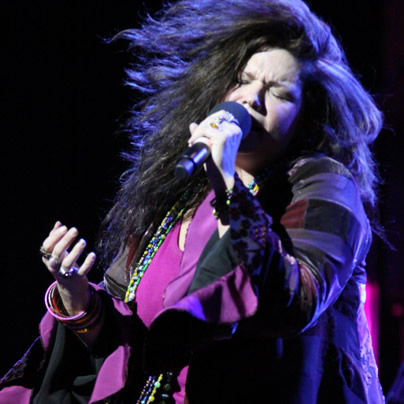
‘One Night With Janis Joplin’
Arena Stage
1101 6th Street, SW
Through Nov. 4
Tickets: $45-$94
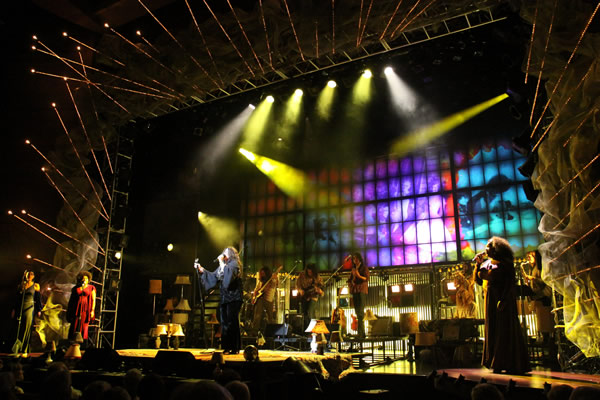
Mary Bridget Davis as Janis Joplin in the Arena Stage production of ‘One Night with Janis Joplin.’ (photo by Janet Macoska; courtesy Arena)
Classic rock fans love pondering what might have become of the greats had they lived. If you really know the history and their personalities, informed prognosticating on what might have been likely makes for great barstool conversation.
For Janis Joplin, it’s hard to say. With a woman so known for her give-it-everything — detractors called it histrionic — delivery, what kind of singer and performer would she have become had she not ODed in 1970?
Mary Bridget Davies has a few thoughts and having researched Joplin’s life for two different stage productions and fronted a rock band herself, she’s in a pretty good position to imagine.
“It’s really a shame she died when she did, not just because it’s sad she died of course, but I really do think she was onto something musically just then,” the 34-year-old Cleveland resident says. “When you think about what came along in music just after that with the Allman Brothers and that whole southern rock thing, it’s a shame she missed that whole movement because I really think she could have been the mama of that. You hear some of that on ‘Pearl,’ like with ‘Bobby McGee.’ I definitely think she would have stayed in music as long as she could because it absolutely was her passion.”
Davies reprises her role as Joplin in “One Night With Janis Joplin” which had a successful summer run in Cleveland and is at Arena Stage in Washington through Nov. 4.
During a lengthy phone chat last week, Davies says several scenarios for what might have been Joplin’s fate in a parallel universe are feasible — the legendary singer might have blown out her voice irreparably in time, gone more heavily into the blues she loved, mellowed out some vocally to pace herself or become a southern rock headliner. Part of the mystique, of course, is that we’ll never know.
The “One Night” show — which its creators say is as much a concert as a play — doesn’t pretend to guess. Rather it recreates Joplin’s live concerts — in a way — while including her influences and thoughts.
Playwright Randy Johnson, who’s written successful shows on other late music icons such as Elvis Presley, Conway Twitty and Patsy Cline, says the show sidesteps the pratfall of possibly becoming a cheesy tribute band-type production because he had access to Joplin’s art, letters and diaries.
“Most of those types of shows are created more from a fan perspective as opposed to a true biographical perspective,” the gay, Los Angeles-based playwright says. “I’ve never done a show that didn’t have the support of the family. I wouldn’t do it. Because if you read a biography without the family’s input, what you’re really reading is an opinion.”
The two-hour show, which finds Davies and a live band tearing through 22 Joplin classics, is pared down from its original length. Johnson opened the show in Portland and found he could streamline the piece after seeing how audiences absorbed it. Any overlap in what was being said versus sung was cut.
Davies was an understudy for the Cleveland production at first, but eventually took over when actress Cat Stephani, who got good reviews as Janis in the Portland production, bowed out just before the Cleveland opening.
Davies says she thinks her predecessor “seemed really run down.” She understands to a point — reproducing Joplin’s no-holds-barred vocal fire eight shows a week could ruin almost anyone’s voice. Even Joplin herself didn’t do that — shows in the classic rock era weren’t the two-hour-or-more marathons they became later with acts like Bruce Springsteen. Neither was Joplin playing eight shows a week.
Davies says while donning the Joplin stage garb can yield a feeling of invincibility — “You step out in those beads and velvet pants and that little waist band thing might as well have guns in it. It’s like you’re totally the sheriff in these parts.” — she does have to pace herself. Being a singer herself, she travels and records with her own blues/rock eponymous outfit, helps. She also played Joplin in the show “Love Janis” in 2005 and tours sometimes with Joplin’s old band Big Brother and the Holding Company.
“I take very good care of myself from a health standpoint,” she says. “Sure, there’s a part of me that would love to go out after the show and have 10 drinks and smoke a pack of cigarettes, but you just can’t do that when you have to do it six more times that week.”
Johnson says he knew Davies would be great in the part.
“You really can’t approach this from a musical theater background,” he says. “You can’t just kind of wink at the audience and fake your way through it. Mary Bridget has Janice in her DNA. … The ones who came in (to audition) with the boas and so on usually don’t make it past 16 notes. She came in in a nice shirt and jeans, opened her mouth and just blew the whole table away.”
Oddly, Davies remembers Liza Minnelli being at the table during her audition.
“I think a lot of the girls buckled under her presence,” she says. “She and Randy are friends. She was sitting there, leaning in at the stage table, all smiles like the best stage mom you could ever ask for.”
For Johnson, who was approached by Joplin’s two siblings (who manage her estate) in 2009 about the possibility of doing a show, Joplin still has something to say even all these decades later.
While he fully acknowledges she had “demons,” he says the “drugs and craziness were only about 10 percent” of her life. When studying her writings, he discovered a “very gentle spirit with a great sense of humor who was not bullshitting anybody.”
A 1950s conformist hangover made it a lot tougher to do so in that era, he says.
“It wasn’t easy but she simply spoke and sung her own truth and audiences were drawn to that.”
Though the show doesn’t address Joplin’s bisexuality, Johnson says her story has a message for gays today.
“If you listen very carefully to the show, she’s telling you to be yourself,” he says. “Don’t bullshit yourself, don’t bullshit anybody else and live it while you can. You can lie but eventually it comes out, so I think her message is to simply live as you are.”
Sports
US wins Olympic gold medal in women’s hockey
Team captain Hilary Knight proposed to girlfriend on Wednesday

The U.S. women’s hockey team on Thursday won a gold medal at the Milan Cortina Winter Olympics.
Team USA defeated Canada 2-1 in overtime. The game took place a day after Team USA captain Hilary Knight proposed to her girlfriend, Brittany Bowe, an Olympic speed skater.
Cayla Barnes and Alex Carpenter — Knight’s teammates — are also LGBTQ. They are among the more than 40 openly LGBTQ athletes who are competing in the games.
The Olympics will end on Sunday.
Movies
Radical reframing highlights the ‘Wuthering’ highs and lows of a classic
Emerald Fennell’s cinematic vision elicits strong reactions

If you’re a fan of “Wuthering Heights” — Emily Brontë’s oft-filmed 1847 novel about a doomed romance on the Yorkshire moors — it’s a given you’re going to have opinions about any new adaptation that comes along, but in the case of filmmaker Emerald Fennell’s new cinematic vision of this venerable classic, they’re probably going to be strong ones.
It’s nothing new, really. Brontë’s book has elicited controversy since its first publication, when it sparked outrage among Victorian readers over its tragic tale of thwarted lovers locked into an obsessive quest for revenge against each other, and has continued to shock generations of readers with its depictions of emotional cruelty and violent abuse, its dysfunctional relationships, and its grim portrait of a deeply-embedded class structure which perpetuates misery at every level of the social hierarchy.
It’s no wonder, then, that Fennell’s adaptation — a true “fangirl” appreciation project distinguished by the radical sensibilities which the third-time director brings to the mix — has become a flash point for social commentators whose main exposure to the tale has been flavored by decades of watered-down, romanticized “reinventions,” almost all of which omit large portions of the novel to selectively shape what’s left into a period tearjerker about star-crossed love, often distancing themselves from the raw emotional core of the story by adhering to generic tropes of “gothic romance” and rarely doing justice to the complexity of its characters — or, for that matter, its author’s deeper intentions.
Fennell’s version doesn’t exactly break that pattern; she, too, elides much of the novel’s sprawling plot to focus on the twisted entanglement between Catherine Earnshaw (Margot Robbie), daughter of the now-impoverished master of the titular estate (Martin Clunes), and Heathcliff (Jacob Elordi), a lowborn child of unknown background origin that has been “adopted” by her father as a servant in the household. Both subjected to the whims of the elder Earnshaw’s violent temper, they form a bond of mutual support in childhood which evolves, as they come of age, into something more; yet regardless of her feelings for him, Cathy — whose future status and security are at risk — chooses to marry Edgar Linton (Shazad Latif), the financially secure new owner of a neighboring estate. Heathcliff, devastated by her betrayal, leaves for parts unknown, only to return a few years later with a mysteriously-obtained fortune. Imposing himself into Cathy’s comfortable-but-joyless matrimony, he rekindles their now-forbidden passion and they become entwined in a torrid affair — even as he openly courts Linton’s naive ward Isabella (Alison Oliver) and plots to destroy the entire household from within. One might almost say that these two are the poster couple for the phrase “it’s complicated.” and it’s probably needless to say things don’t go well for anybody involved.
While there is more than enough material in “Wuthering Heights” that might easily be labeled as “problematic” in our contemporary judgments — like the fact that it’s a love story between two childhood friends, essentially raised as siblings, which becomes codependent and poisons every other relationship in their lives — the controversy over Fennell’s version has coalesced less around the content than her casting choices. When the project was announced, she drew criticism over the decision to cast Robbie (who also produced the film) opposite the younger Elordi. In the end, the casting works — though the age gap might be mildly distracting for some, both actors deliver superb performances, and the chemistry they exude soon renders it irrelevant.
Another controversy, however, is less easily dispelled. Though we never learn his true ethnic background, Brontë’s original text describes Heathcliff as having the appearance of “a dark-skinned gipsy” with “black fire” in his eyes; the character has typically been played by distinctly “Anglo” men, and consequently, many modern observers have expressed disappointment (and in some cases, full-blown outrage) over Fennel’s choice to use Elordi instead of putting an actor of color for the part, especially given the contemporary filter which she clearly chose for her interpretation for the novel.
In fact, it’s that modernized perspective — a view of history informed by social criticism, economic politics, feminist insight, and a sexual candor that would have shocked the prim Victorian readers of Brontë’s novel — that turns Fennell’s visually striking adaptation into more than just a comfortably romanticized period costume drama. From her very opening scene — a public hanging in the village where the death throes of the dangling body elicit lurid glee from the eagerly-gathered crowd — she makes it oppressively clear that the 18th-century was not a pleasant time to live; the brutality of the era is a primal force in her vision of the story, from the harrowing abuse that forges its lovers’ codependent bond, to the rigidly maintained class structure that compels even those in the higher echelons — especially women — into a kind of slavery to the system, to the inequities that fuel disloyalty among the vulnerable simply to preserve their own tenuous place in the hierarchy. It’s a battle for survival, if not of the fittest then of the most ruthless.
At the same time, she applies a distinctly 21st-century attitude of “sex-positivity” to evoke the appeal of carnality, not just for its own sake but as a taste of freedom; she even uses it to reframe Heathcliff’s cruel torment of Isabella by implying a consensual dom/sub relationship between them, offering a fragment of agency to a character typically relegated to the role of victim. Most crucially, of course, it permits Fennell to openly depict the sexuality of Cathy and Heathcliff as an experience of transgressive joy — albeit a tormented one — made perhaps even more irresistible (for them and for us) by the sense of rebellion that comes along with it.
Finally, while this “Wuthering Heights” may not have been the one to finally allow Heathcliff’s ambiguous racial identity to come to the forefront, Fennell does employ some “color-blind” casting — Latif is mixed-race (white and Pakistani) and Hong Chau, understated but profound in the crucial role of Nelly, Cathy’s longtime “paid companion,” is of Vietnamese descent — to illuminate the added pressures of being an “other” in a world weighted in favor of sameness.
Does all this contemporary hindsight into the fabric of Brontë’s epic novel make for a quintessential “Wuthering Heights?” Even allowing that such a thing were possible, probably not. While it presents a stylishly crafted and thrillingly cinematic take on this complex classic, richly enhanced by a superb and adventurous cast, it’s not likely to satisfy anyone looking for a faithful rendition, nor does it reveal a new angle from which the “romance” at its center looks anything other than toxic — indeed, it almost fetishizes the dysfunction. Even without the thorny debate around Heathcliff’s racial identity, there’s plenty here to prompt purists and revisionists alike to find fault with Fennell’s approach.
Yet for those looking for a new window into to this perennial classic, and who are comfortable with the radical flourish for which Fennell is already known, it’s an engrossing and intellectually stimulating exploration of this iconic story in a way that exchanges comfortable familiarity for unpredictable chaos — and for cinema fans, that’s more than enough reason to give “Wuthering Heights” a chance.
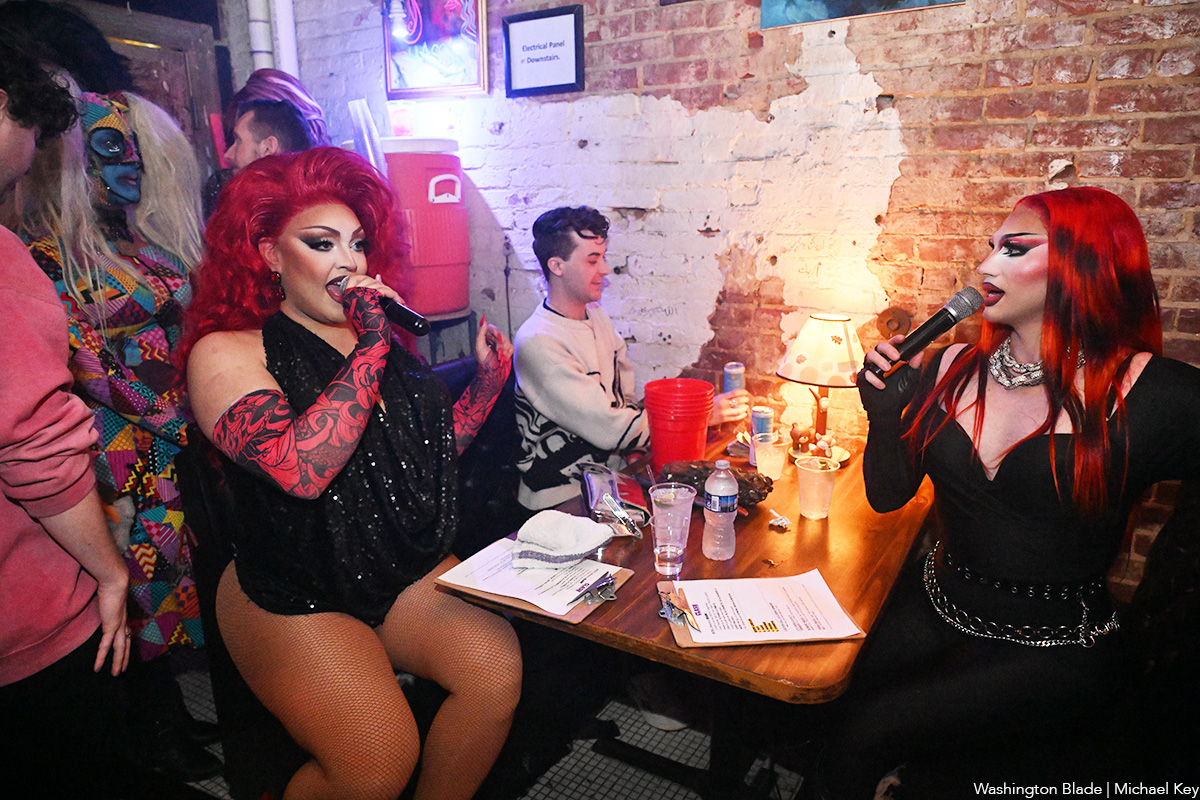
Crimsyn and Tatianna hosted the new weekly drag show Clash at Trade (1410 14th Street, N.W.) on Feb. 14, 2026. Performers included Aave, Crimsyn, Desiree Dik, and Tatianna.
(Washington Blade photos by Michael Key)
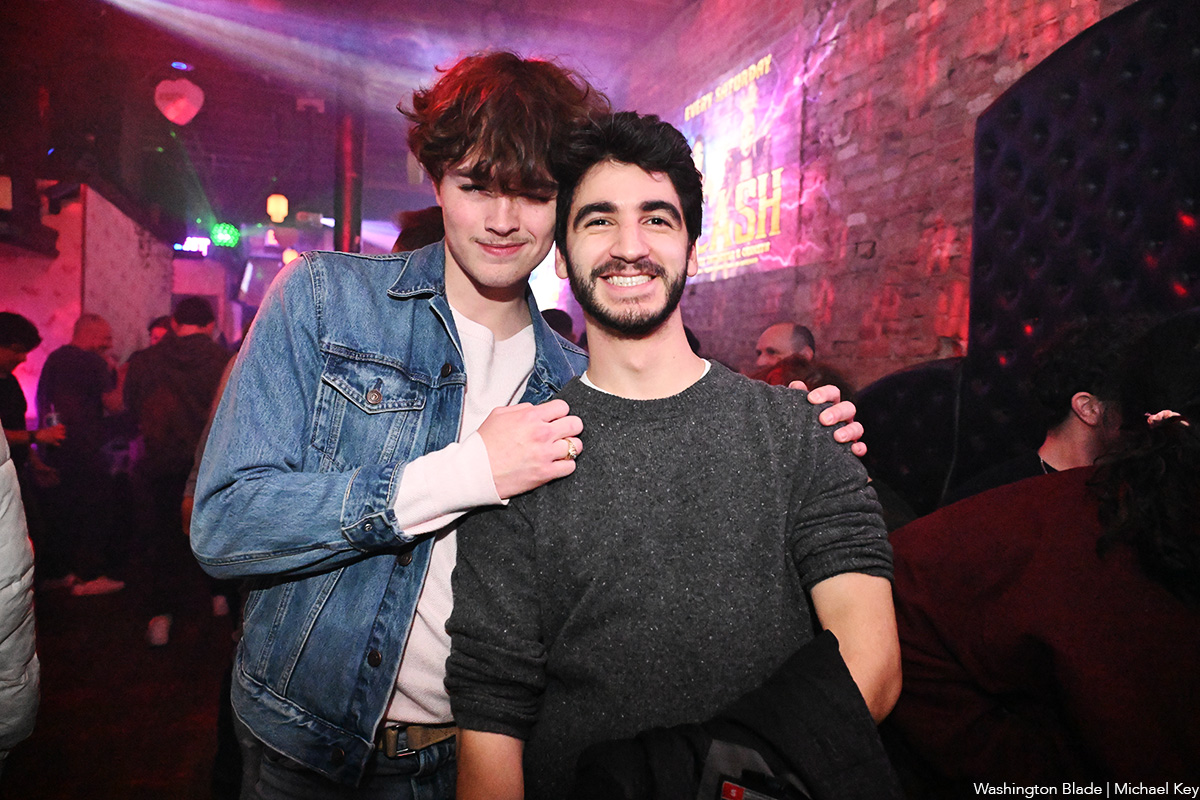
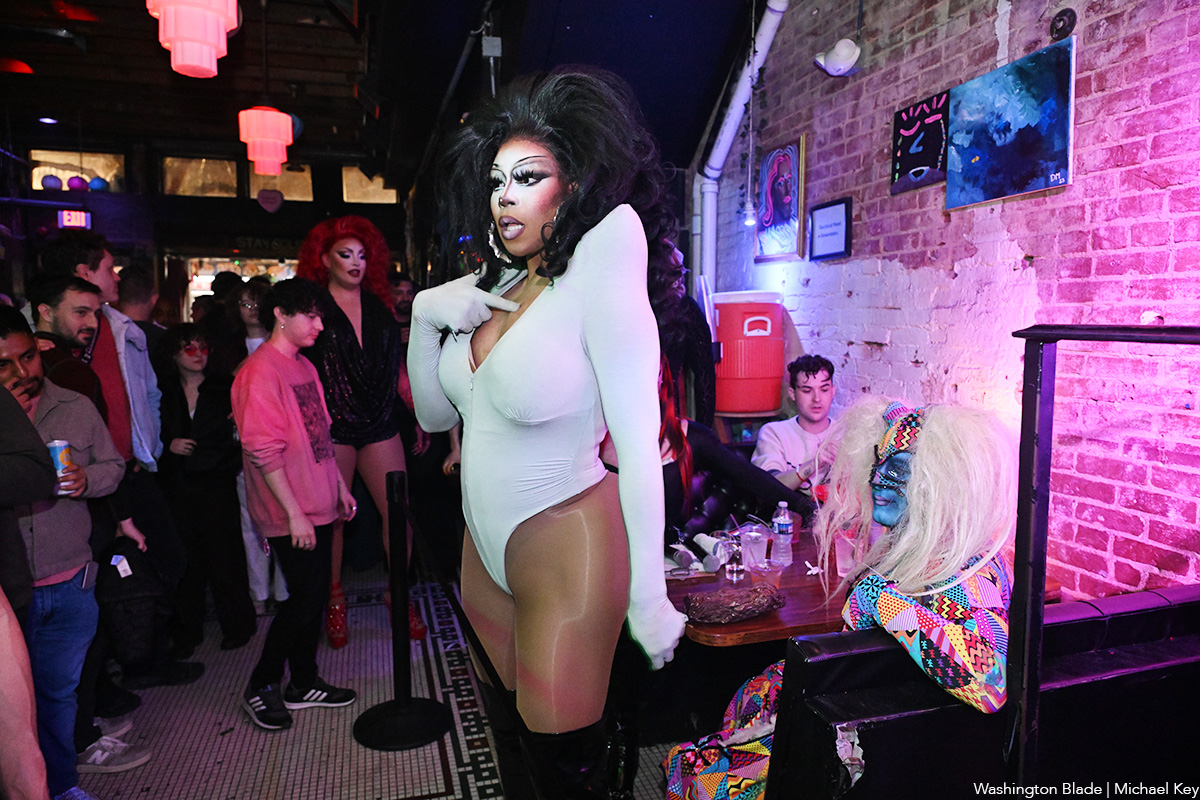
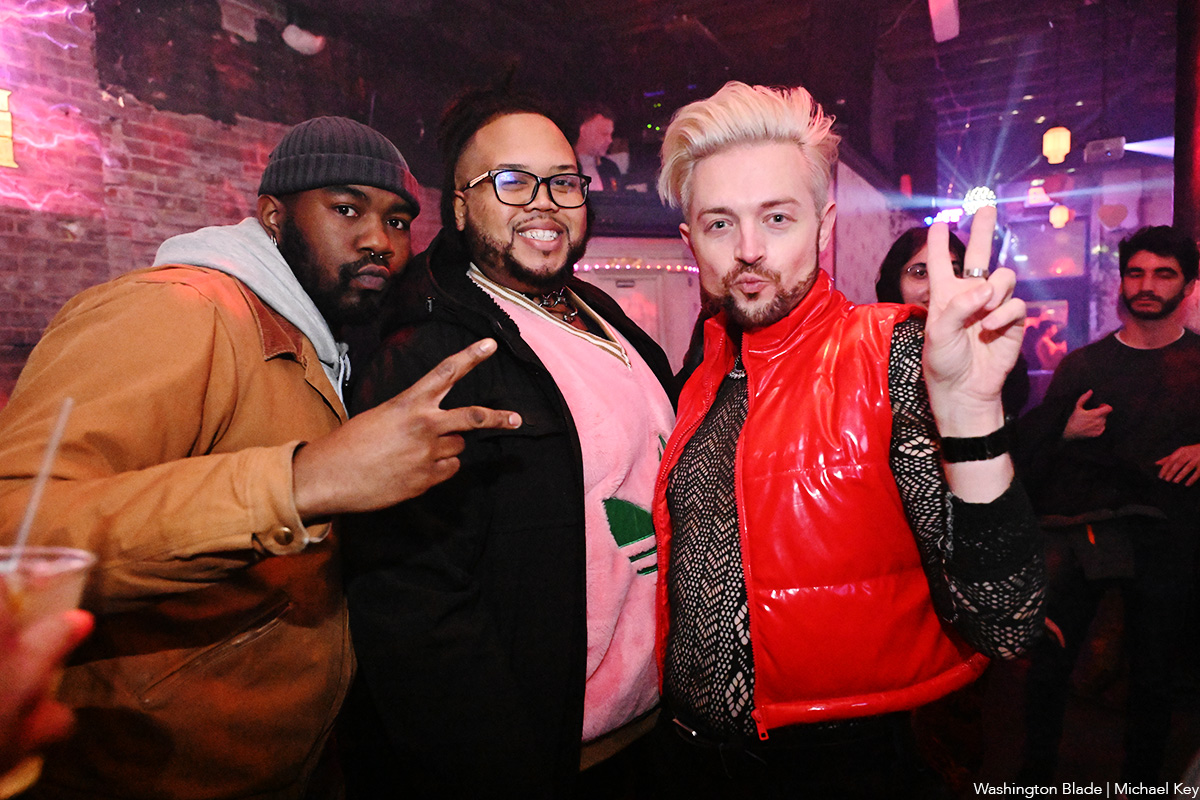
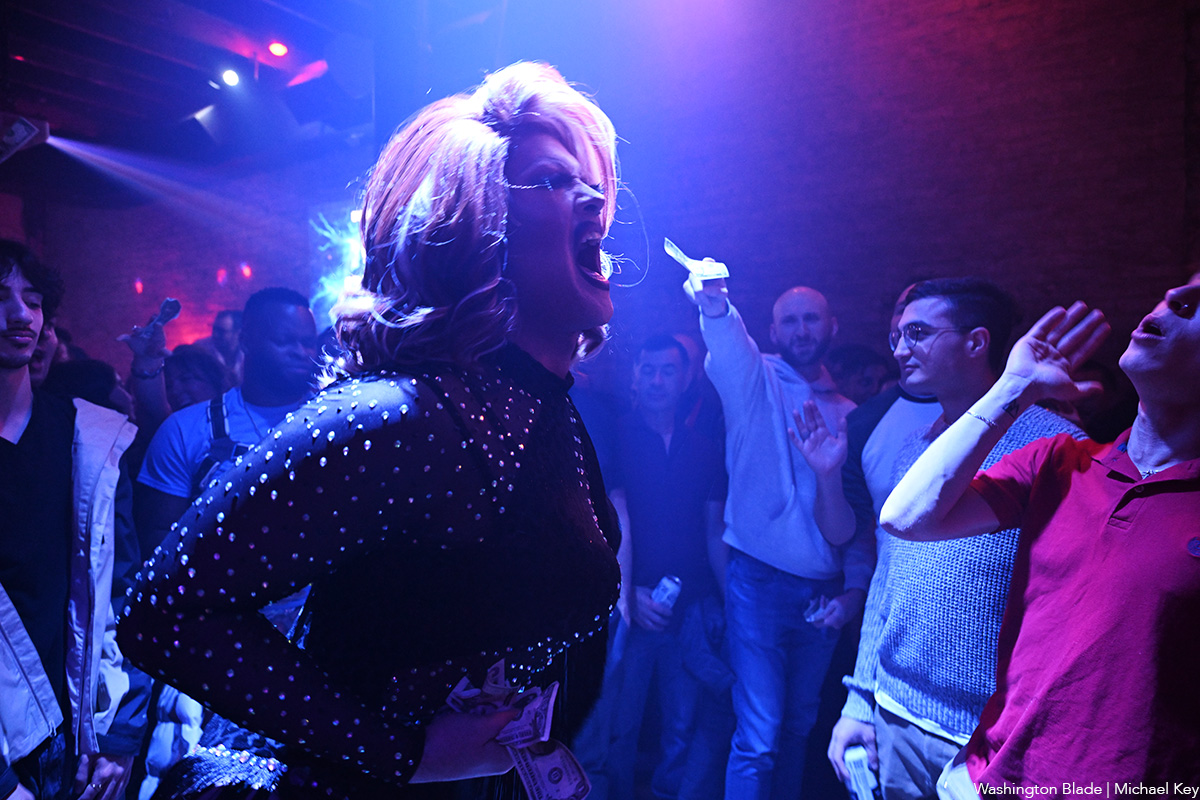

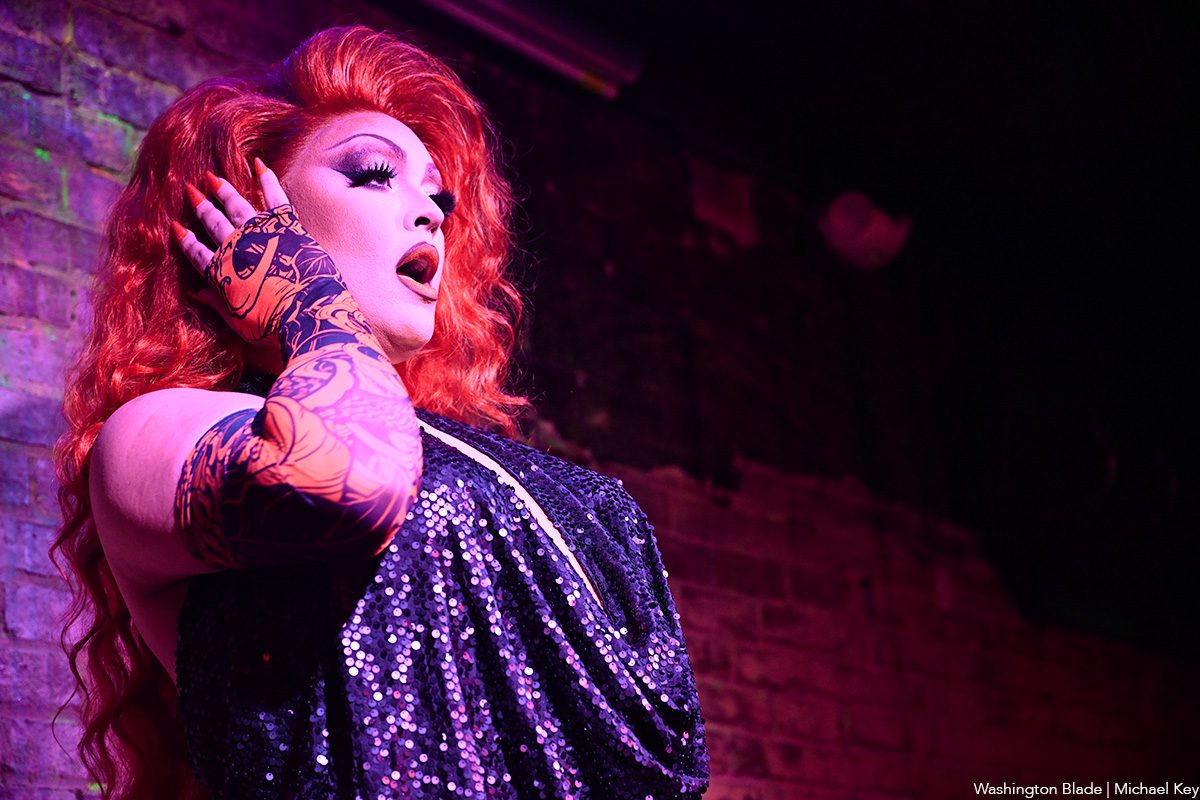
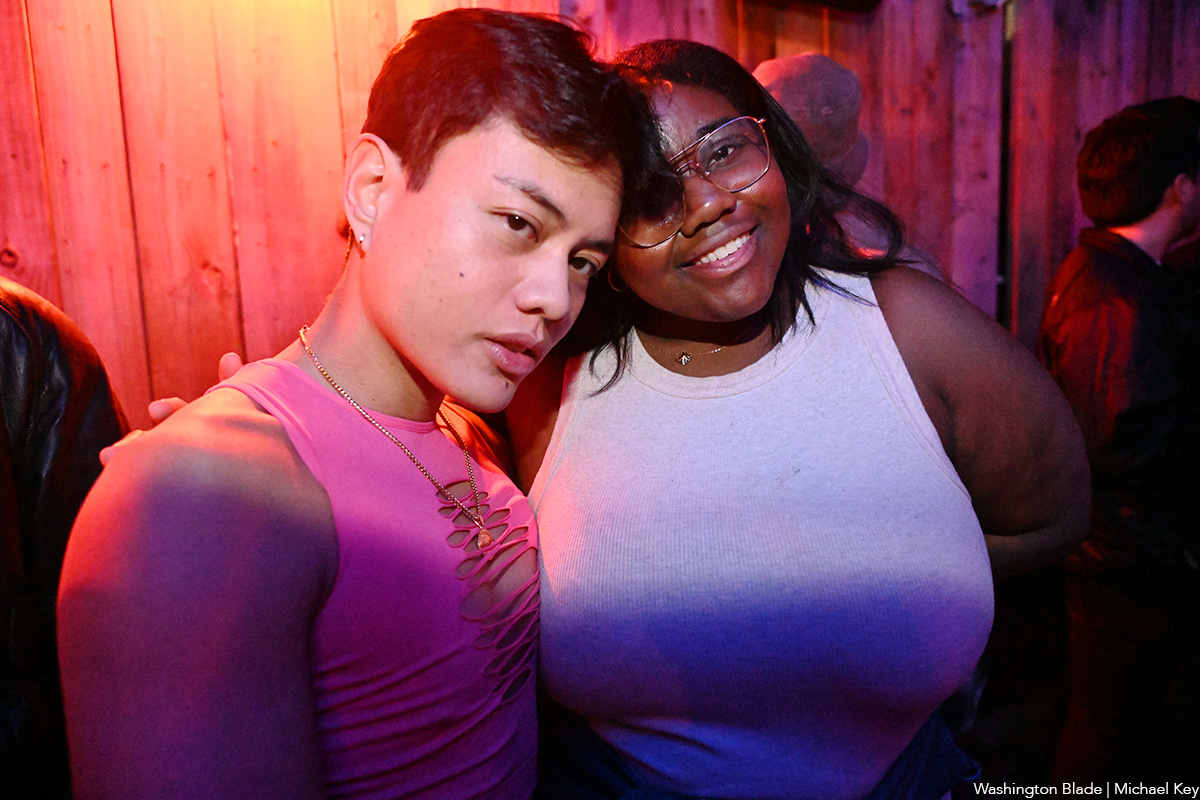
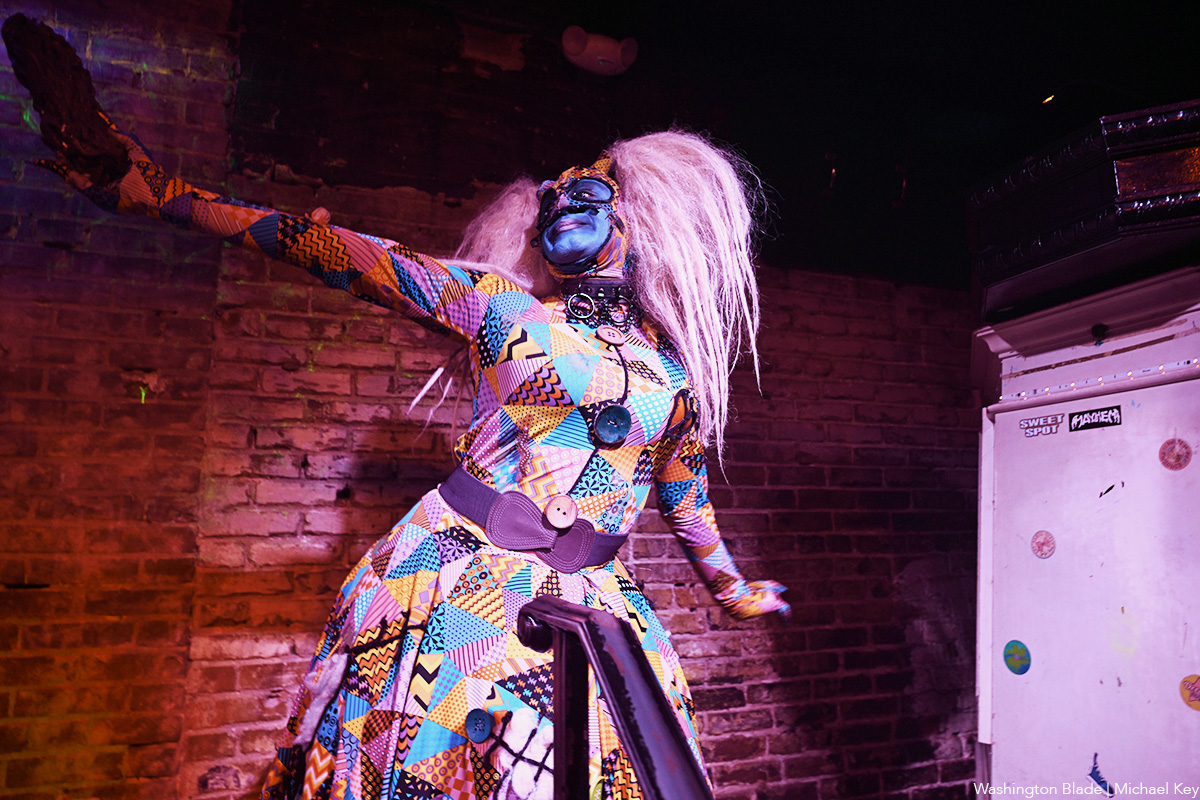
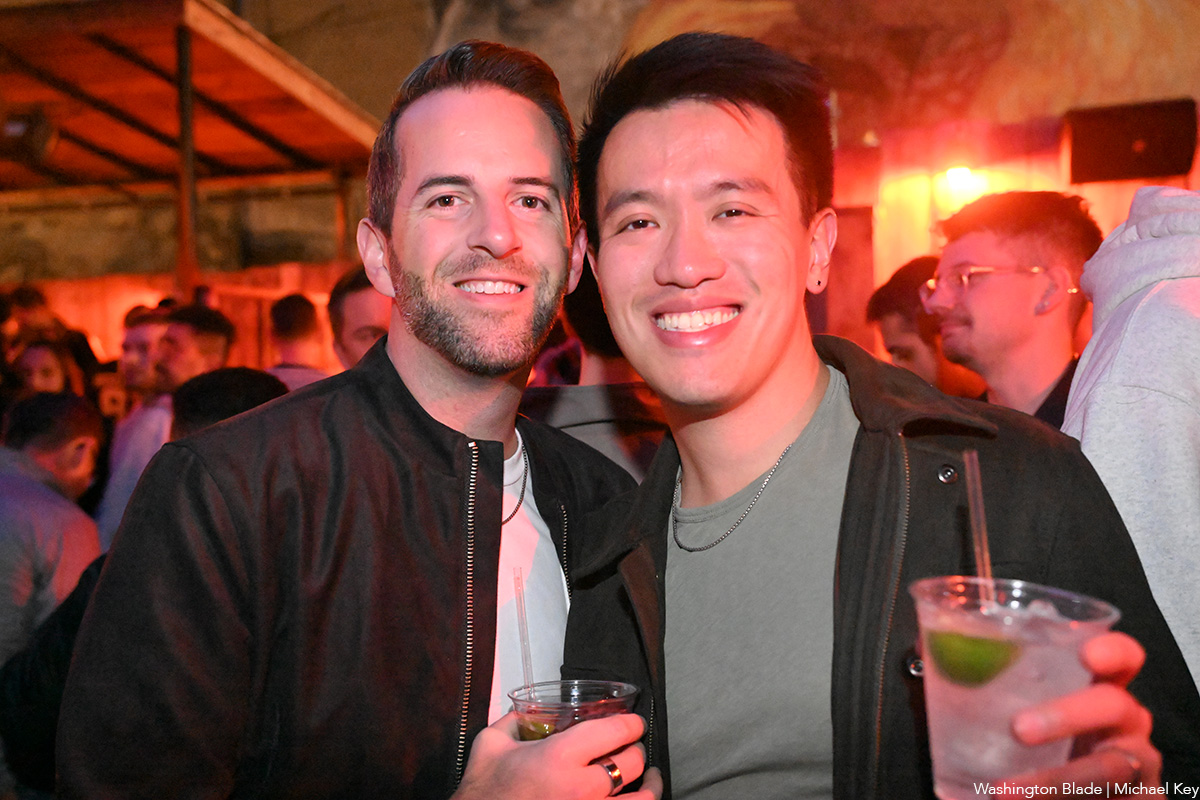
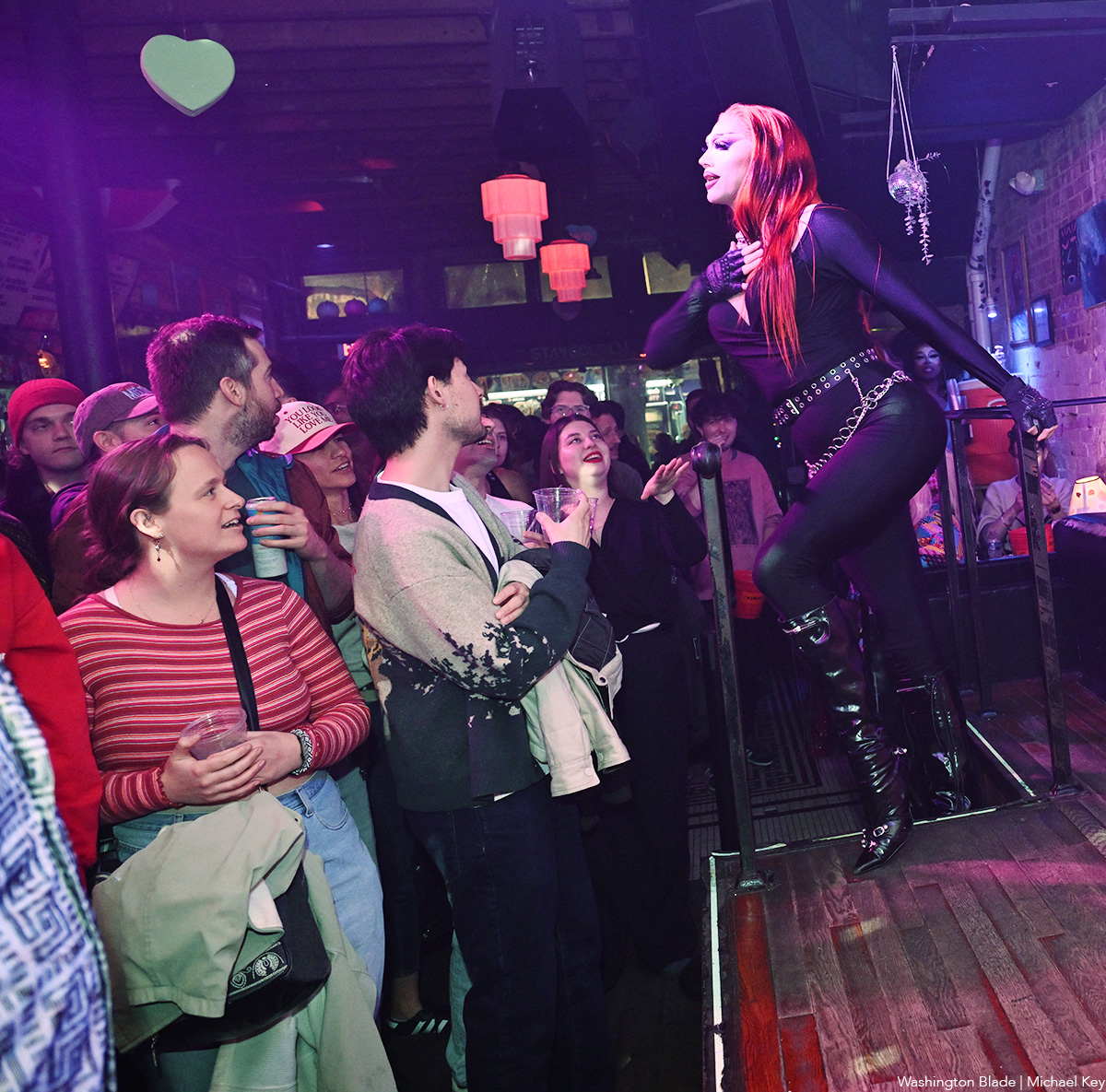
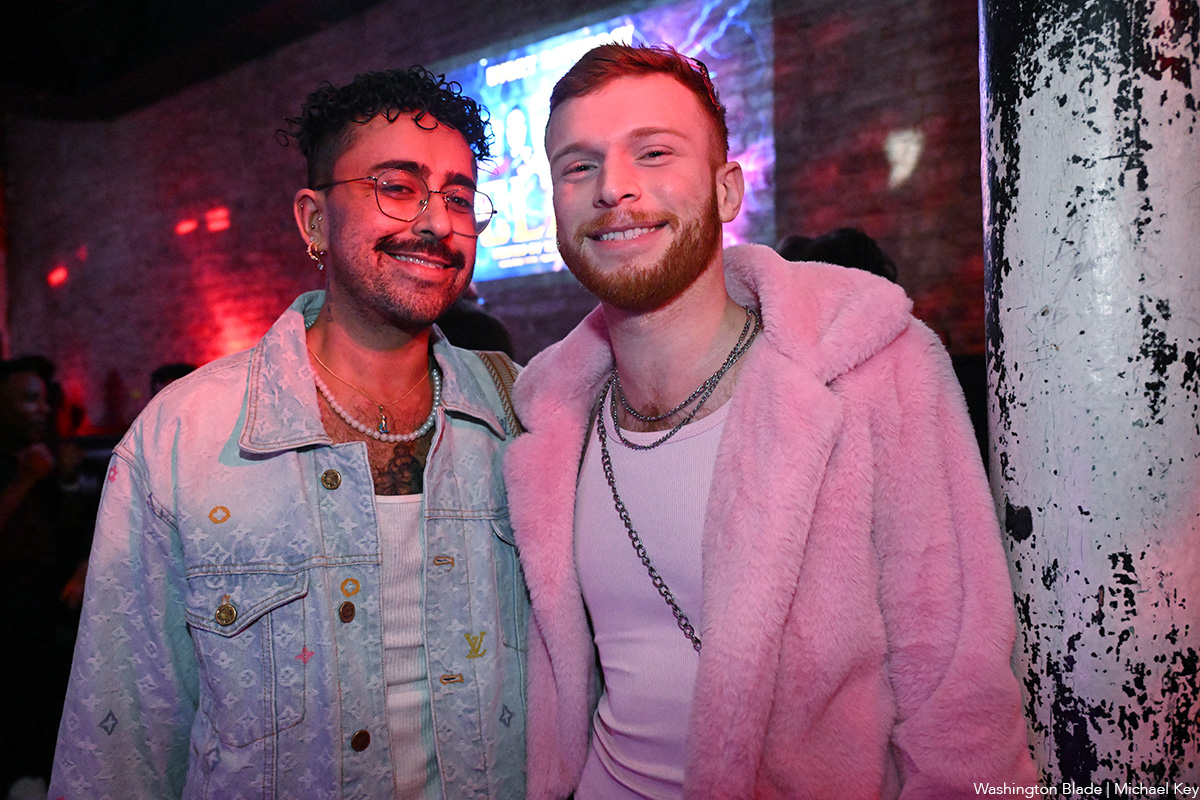
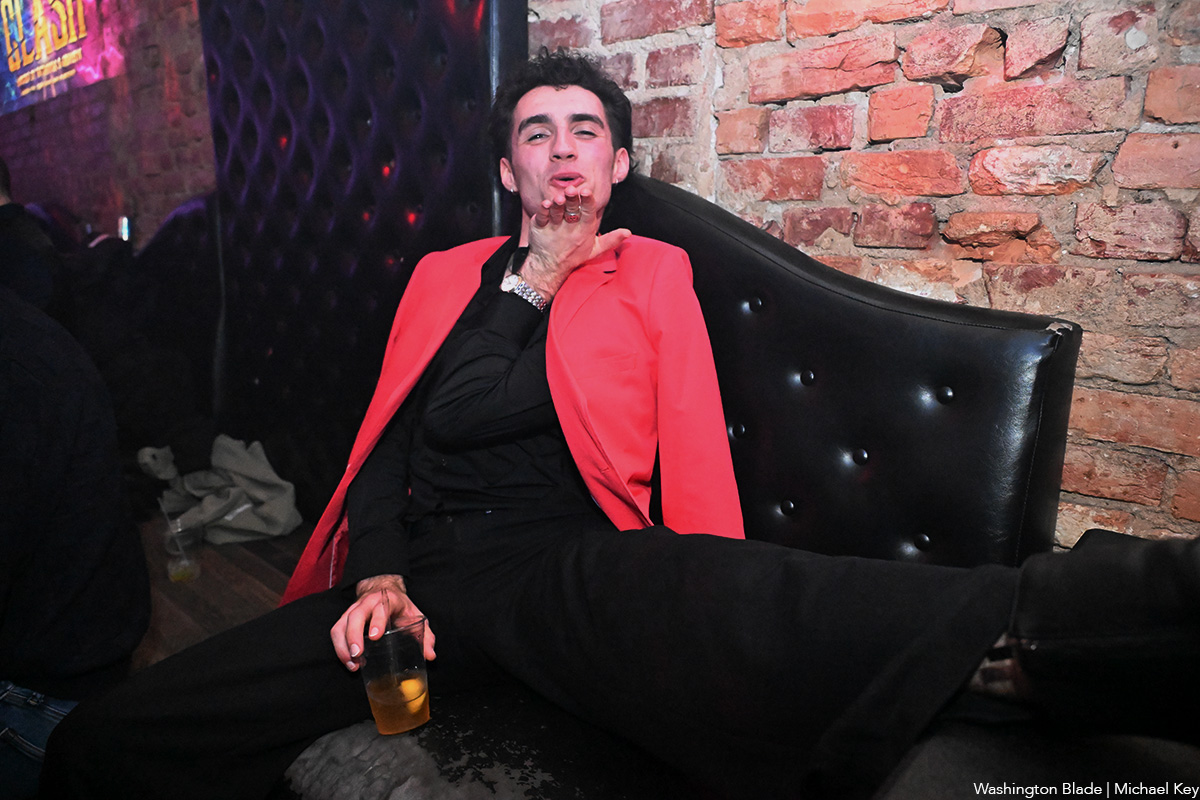
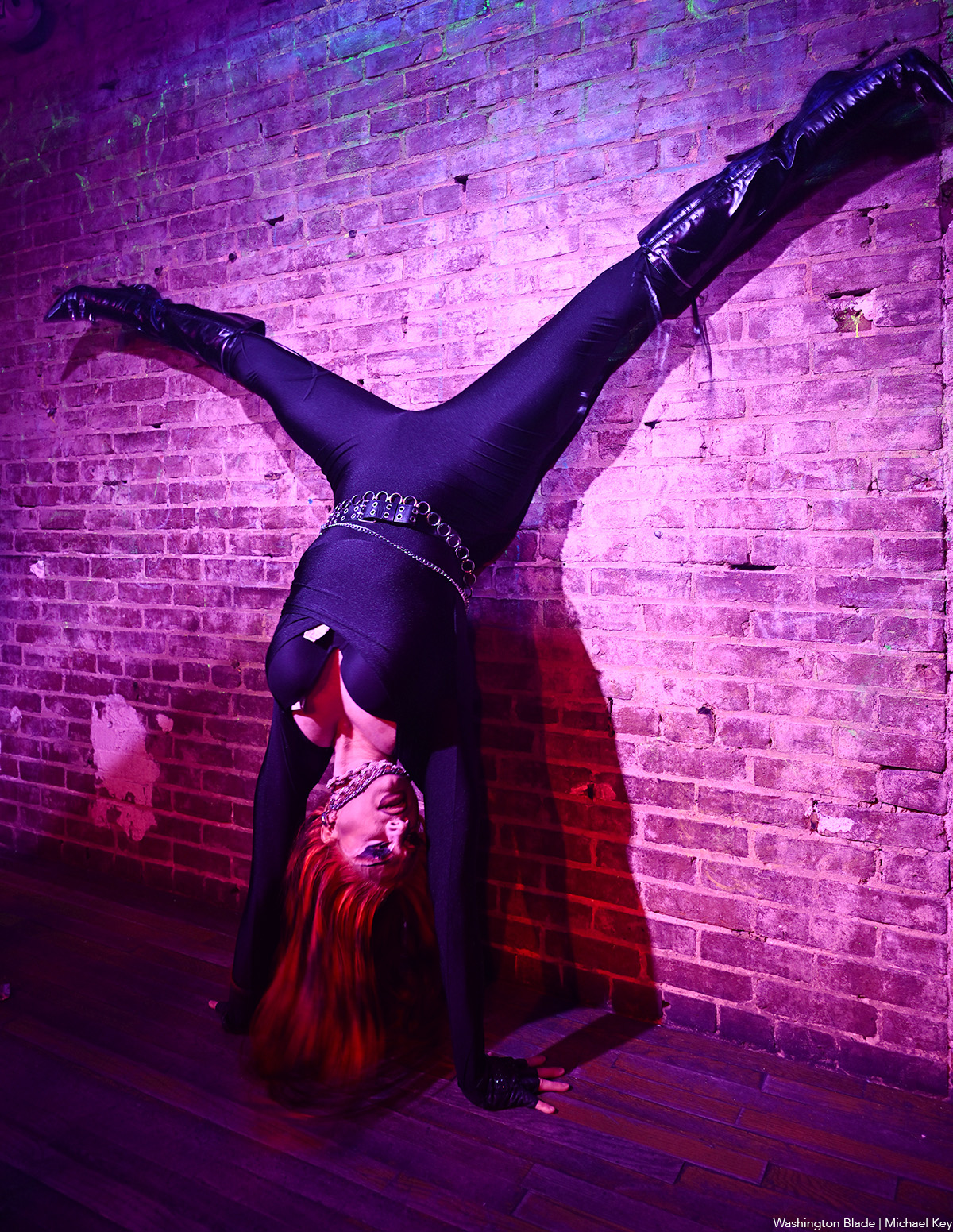
-

 Baltimore4 days ago
Baltimore4 days ago‘Heated Rivalry’ fandom exposes LGBTQ divide in Baltimore
-

 Real Estate4 days ago
Real Estate4 days agoHome is where the heart is
-

 District of Columbia4 days ago
District of Columbia4 days agoDeon Jones speaks about D.C. Department of Corrections bias lawsuit settlement
-

 European Union4 days ago
European Union4 days agoEuropean Parliament resolution backs ‘full recognition of trans women as women’





















